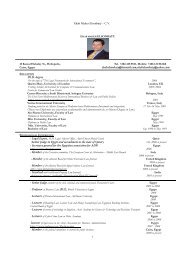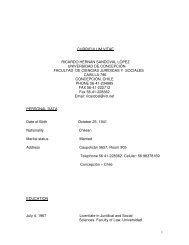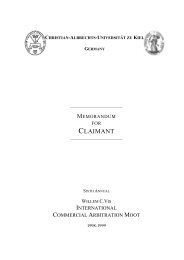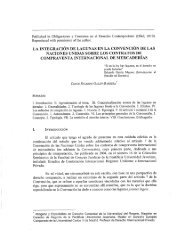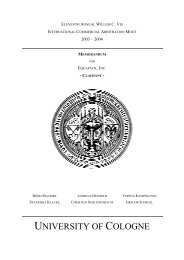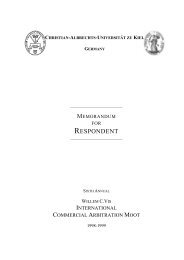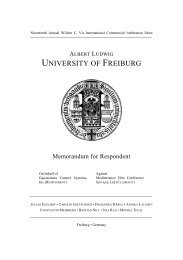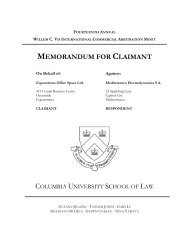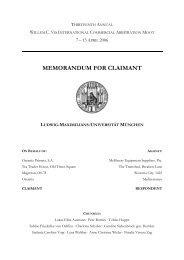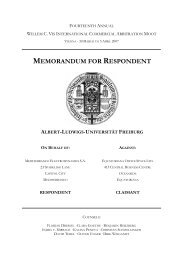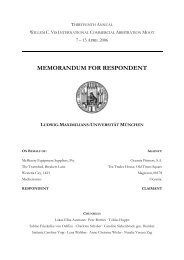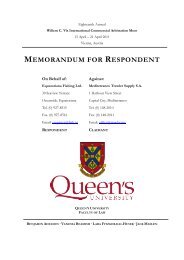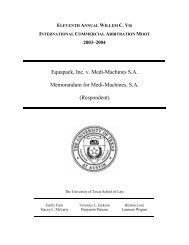MEMORANDUM FOR RESPONDENT - CISG Database
MEMORANDUM FOR RESPONDENT - CISG Database
MEMORANDUM FOR RESPONDENT - CISG Database
You also want an ePaper? Increase the reach of your titles
YUMPU automatically turns print PDFs into web optimized ePapers that Google loves.
2. The Respondent is not barred by the principle of good faith from<br />
requesting for the reconstitution of a proper ad hoc tribunal.<br />
i. The principle of good faith does not preclude challenges to a<br />
tribunal’s jurisdiction.<br />
33. The Claimant asserts that the principle of procedural good faith bars the Respondent<br />
from challenging jurisdiction as it would only cause delay and additional costs without<br />
providing any material benefit to either party [Claimant Memo, para. 42]. This is an<br />
erroneous interpretation of the principle of good faith.<br />
34. While it is true that the principle of good faith obliges parties to abstain from acts<br />
which unduly delay the arbitral proceedings [ICC Case No. 3896 of 1982], it does not mean<br />
that it would be in bad faith to challenge the existence or validity of the arbitration agreement<br />
[Gaillard/Savage, para. 477]. The principle of good faith is typically invoked where a party<br />
challenges the validity of an arbitration agreement for failure to meet the writing requirement,<br />
after acquiescing in its creation [Garnett/Gabriel/Waincymer/Epstein, p. 46; Berger, p. 148].<br />
The principle is simply a less technical expression of the need to find the parties’ common<br />
intention, rather than merely examining the literal meaning of the terms used<br />
[Gaillard/Savage, para. 477]. In essence, “the fundamental principle of good faith… entails<br />
searching for the common intention of… the parties” [Gouvernement Royal Hellénique v.<br />
Gourvernement de sa Majesté Britannique; Gaillard/Savage, para. 1470].<br />
35. Thus, it can be seen that the good faith principle only applies in interpreting the<br />
common intention of the parties to arbitrate. It does not apply to impose a duty on parties to<br />
arbitrate simply because delay is caused. The Claimant’s assertion finds no support in<br />
precedents or authority. Although Article 16(2) of the Model Law is cited by the Claimant<br />
[Claimant’s Memo, para. 43], that Article deals with the specific problem of time limits for<br />
jurisdictional challenges and cannot be extended to impose a broad duty of good faith.<br />
36. Not only is the Claimant’s argument not supported by authority, it contravenes one of<br />
the most fundamental principles of international arbitration – party autonomy<br />
[Garnett/Gabriel/Waincymer/Epstein, p. 3; Redfern/Hunter, para. 6-03; Article 19(1) Model<br />
Law]. An arbitral tribunal derives its jurisdiction from the consent of the parties as enshrined<br />
in an arbitration agreement [Galliard/Savage, para. 647; Redfern/Hunter, para. 1-11]. In the<br />
13



